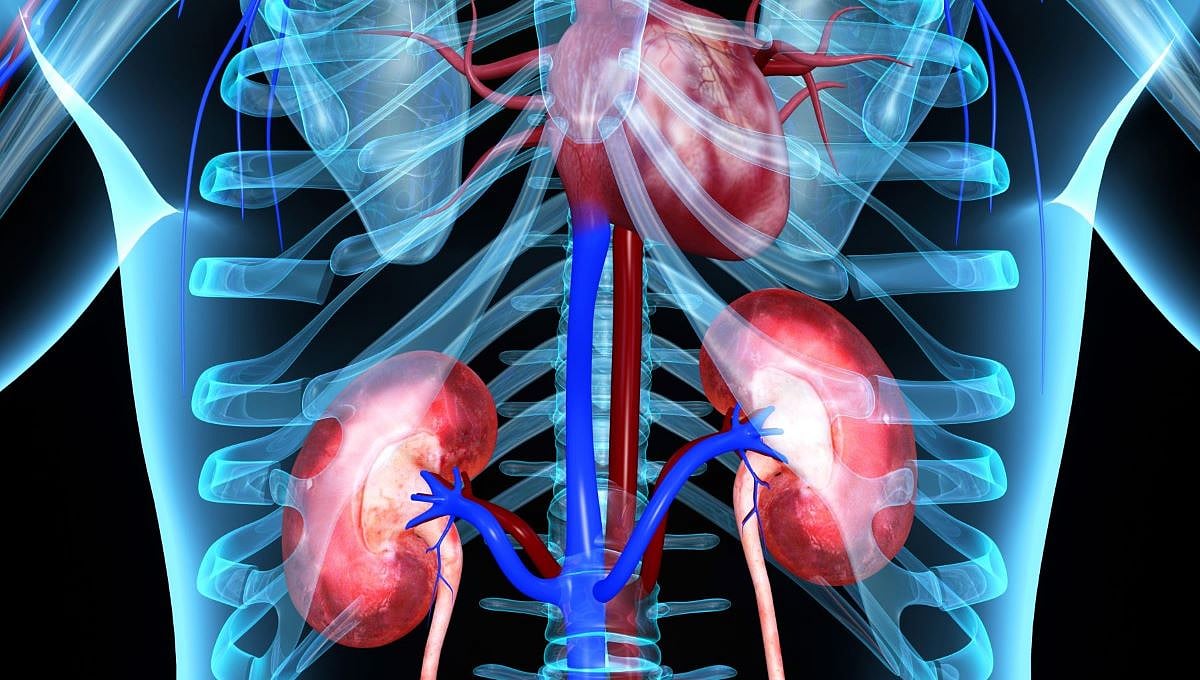Summary
Skin Health
Poor Cardiovascular-Kidney-Metabolic Health Increases Psoriasis Risk
Significantly higher risk for psoriasis noted, especially among those with high genetic risk
Source: HealthDay

AI News Q&A (Free Content)
Q1: What is the link between metabolic syndrome and psoriasis risk?
A1: Metabolic syndrome, characterized by a combination of conditions like obesity, high blood pressure, and insulin resistance, increases the risk of developing psoriasis. Psoriasis is an autoimmune disease that causes red, itchy, and scaly skin patches. The systemic inflammation associated with metabolic syndrome can exacerbate or trigger psoriasis. [Source: Wikipedia, Metabolic syndrome]
Q2: How does poor cardiovascular health contribute to the risk of psoriasis?
A2: Poor cardiovascular health, often linked to metabolic syndrome, can increase the risk of psoriasis. Cardiovascular issues like atherosclerosis are associated with chronic inflammation, which is also a key factor in the development of psoriasis. Therefore, individuals with cardiovascular problems might be at a higher risk of developing psoriasis due to shared inflammatory pathways. [Source: Wikipedia, Psoriatic arthritis]
Q3: What recent research has been conducted on time-restricted eating and its effects on psoriasis?
A3: A recent study protocol published in 2025 explores the effects of acute time-restricted eating on inflammation in individuals with psoriasis. This prospective study aims to investigate whether restricting eating times can reduce systemic inflammation and improve psoriasis symptoms, potentially offering a novel dietary approach to managing the condition. [Source: Effects of Acute Time-Restricted Eating on Inflammation in Individuals With Psoriasis: Protocol for a Case-Control, Prospective Study]
Q4: What role does genetic risk play in the development of psoriasis among individuals with metabolic syndrome?
A4: Genetic predisposition significantly influences the development of psoriasis in individuals with metabolic syndrome. While metabolic syndrome can exacerbate inflammation, genetic factors determine individual susceptibility to psoriasis. People with a high genetic risk may experience more severe symptoms or earlier onset when combined with metabolic health issues. [Source: Wikipedia, Psoriatic arthritis]
Q5: How does maintaining skin health benefit overall well-being?
A5: Maintaining skin health is crucial for overall well-being as the skin plays a vital role in immune regulation, endocrine signaling, and microbiome interactions. Healthy skin can prevent systemic inflammation, lower cardiovascular risks, and manage metabolic disorders. Furthermore, good skin health boosts psychological health, self-esteem, and social engagement. [Source: Skin Care Supports Overall Well-Being]
Q6: What impact does systemic inflammation have on both psoriasis and cardiovascular health?
A6: Systemic inflammation is a common underlying factor that affects both psoriasis and cardiovascular health. In psoriasis, inflammation leads to skin lesions and systemic symptoms, while in cardiovascular diseases, it contributes to atherosclerosis and other heart conditions. Addressing inflammation could potentially mitigate risks for both conditions. [Source: Wikipedia, Metabolic syndrome]
Q7: What are the implications of the study on skin health in aging populations?
A7: The study on skin health highlights the importance of maintaining skin integrity in aging populations to mitigate the progression of systemic diseases associated with inflammation and aging. By improving epidermal function, there is potential to lower risks of conditions like psoriasis and cardiovascular diseases, enhancing overall health in older adults. [Source: Skin Care Supports Overall Well-Being]
References:
- Metabolic syndrome
- Psoriatic arthritis
- Skin Care Supports Overall Well-Being
- Effects of Acute Time-Restricted Eating on Inflammation in Individuals With Psoriasis: Protocol for a Case-Control, Prospective Study





